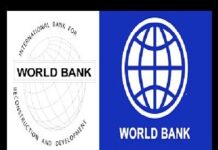The economic crisis in Tunisia and the repercussions of the health crisis and the closure measures caused an unprecedented collapse of economic growth, which reached a contraction rate of more than eight percent in 2020, with the loss of thousands of job opportunities in tourism, services and transportation, in addition to the damage to the unorganized sectors.
In addition, the unemployment rate rose to 17.8 percent during the first quarter of 2021, compared to 17.4 percent in the fourth quarter of 2020, according to statistics from the National Institute of Statistics.
On Wednesday, the Tunisian authorities began disbursing circumstantial financial aid to those affected by the Corona pandemic, and while observers valued the step to reduce the burdens on citizens, the process was accompanied by widespread controversy regarding the groups benefiting from it and the difficulty of accessing digital platforms for many.
The Minister of Social Affairs, Mohamed Trabelsi, confirmed that “the social aid that was distributed on Wednesday, estimated at three hundred dinars ($107), belongs to citizens who receive a permanent grant from the state.
Trabelsi said in a statement to a local radio station, “This aid also includes a category of unregistered citizens who have been affected by the Corona pandemic.”
He also explained that the third category concerned with obtaining social assistance, estimated at three hundred dinars, includes retirees who receive salaries less than three hundred dinars, as well as socially secured and unsecured affected persons.
Regarding the complaints of some citizens from the “Aman” platform about registering for aid, Trabelsi said that six million people entered this platform, which caused it to slow down, calling on them to try to access it outside of peak times.
The government had signed the loan agreement with the World Bank since last April, and it will be allocated to help about one million poor families affected by the repercussions of the Corona epidemic.
The loan agreement includes allocating one hundred and twenty million dollars to finance the “Social Safety” program for the disbursement of monthly scheduled grants of one hundred and eighty dinars (about $65) to about 266,000 poor families, while the remaining eighty million dollars of the loan value will be directed to disbursing grants to children from these families, who are less than six years old.
Several political parties appreciated the importance of this initiative and its role in alleviating the burdens on citizens and helping them face the expenses of daily life, in light of the deteriorating health situation, the exacerbation of economic and social crises, and the high rates of unemployment and poverty.
Some jurists considered that the initiative, in terms of helping vulnerable groups, is good, but it is necessary to take into account the privacy and social conditions of citizens and their limited interaction with social media and digital platforms.
The Vice President of the World Bank Group for the Middle East and North Africa, Ferid Belhaj, previously considered that Tunisia’s success in implementing the social protection project for the urgent response to the Corona pandemic encourages the World Bank to support it more in this field. During a meeting with the accompanying delegation with the Minister of Social Affairs, Mohamed Trabelsi, Belhaj expressed his satisfaction with the work accomplished by the Ministry of Social Affairs in cooperation with its partners in preparation for the implementation of the social protection project for the urgent response to the Covid-19 pandemic, according to which the Ministry will disburse circumstantial aid to poor families and to those with limited income.
He also affirmed the Bank’s keenness to enhance cooperation and support Tunisia’s programs in the field of social protection, poverty alleviation and social security.











